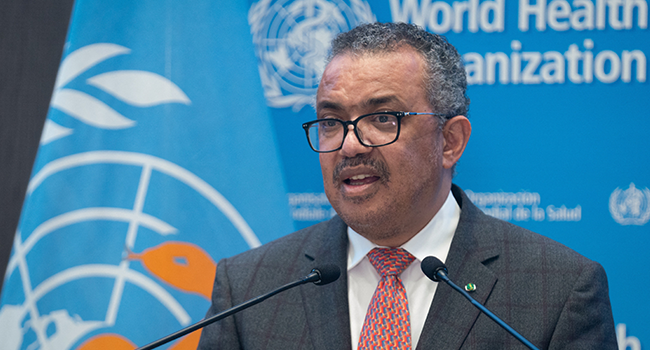
#The Nigerian Government is in the process of procuring vaccines to protect citizens from contracting the virus.
However, there are questions that must be answered with regards to getting vaccinated and how the vaccine works.
Below are answers to 13 questions that might be asked. These explanations are as put forward by the National Orientation Agency (NOA) of Nigeria.
1. What are COVID-19 vaccines?
COVID-19 vaccines aim to prevent the virus by triggering an immune response. If vaccinated, you are fully protected!
2. Can the vaccine infect me with COVID-19?
The vaccine will be subjected to laboratory examinations to ensure it is safe before being administered on humans.
3. Can the COVID-19 vaccine alter DNA?
There is no scientific evidence that COVID-19 vaccine will change or affect human genetic information (DNA).

4. If I have had COVID-19 and have recovered, do I still need to be vaccinated
Recovery from #COVID19 infection after treatment does not give you immunity from being infected again. Vaccine doses will protect you from contracting the virus.

5. Is it better to get natural immunity to COVID-19 rather than a vaccine?
Immunity you will get from #COVID19 vaccination is scientifically proven to be effective. Vaccination is the best protection and it is SAFE!

6. Does the COVID-19 vaccine contain a microchip
Disregard the claim that the #COVID19 vaccine contains a microchip. National Agency for Food, Drug Administration And Control (NAFDAC) will certify the vaccine safe before being administered by the Federal Ministry of Health through the National Primary Health Care Development Agency.

7. Is it safe to get a COVID-19 vaccine if I have underlying medical conditions?
People with underlying medical conditions such as heart and lung diseases, diabetes or cancer have nothing to fear. #COVID19 infection has more impact on them, hence the need to be vaccinated.

8. Will the shot hurt or make me sick
Mild side effects may occur as in any other vaccination. However, the vaccine has been proven to be effective and safe on humans.

9. Why should I get vaccinated for COVID-19?
It is recommended that you are vaccinated to #StaySafe from #COVID19 infection to prevent you from getting sick or dying.

10. Can pregnant and lactating mothers receive the vaccine?
NO. Studies are yet to be conducted to ascertain the safety of the vaccine if administered to pregnant or lactating mothers.

11. Were safety procedures and standards not compromised in the vaccine production?
No safety or standard procedures compromised in development and production of #COVID19 vaccine Syringe. It is certified by be SAFE!

12. Do I still need to wear a facemask after vaccination?
Wearing a face mask is one of the effective Non-pharmaceutical Interventions (NPIs) to stop the spread of COVID-19.

13. How do I know if the vaccine is safe?
All vaccines receive approval from the World Health Organization. In addition to that NAFDAC will also have to certify only vaccines that are safe for humans.

QUICK REMINDER!!!
What is COVID-19?
COVID-19 is an infectious disease caused by the most recently discovered coronavirus. The new virus was unknown to humans before the outbreak in Wuhan, China in December 2019.
What are the symptoms of the virus?







